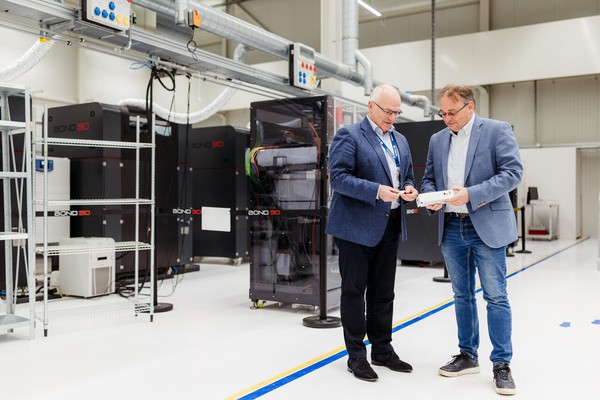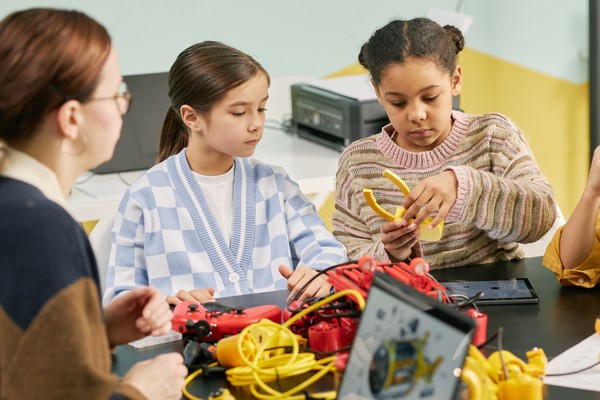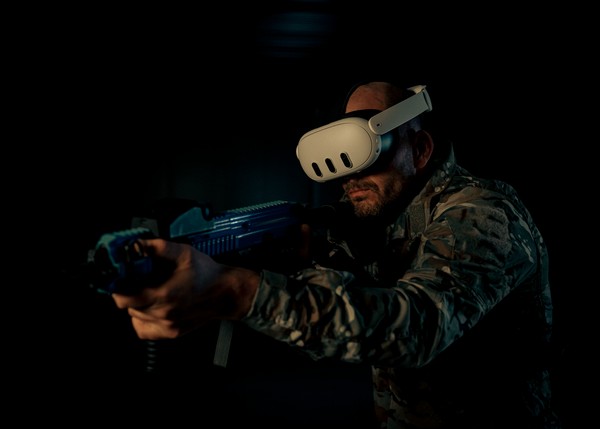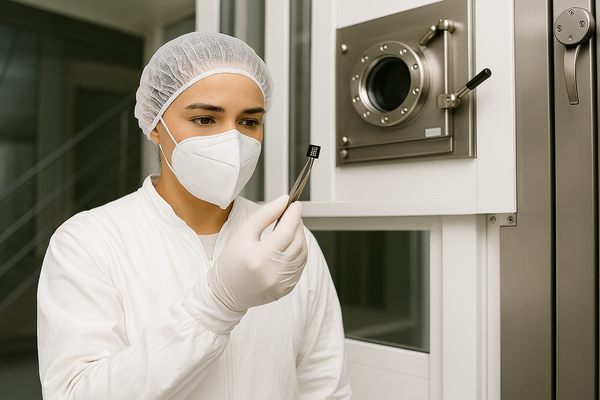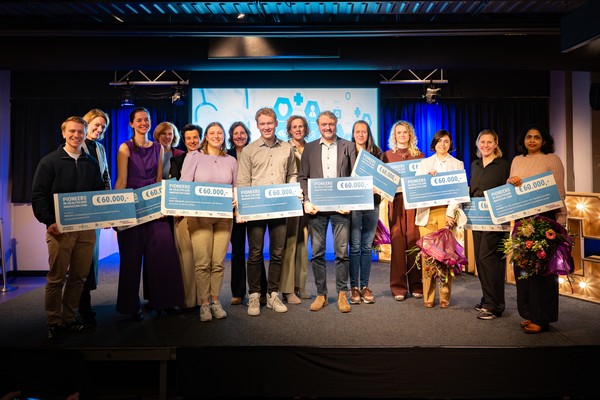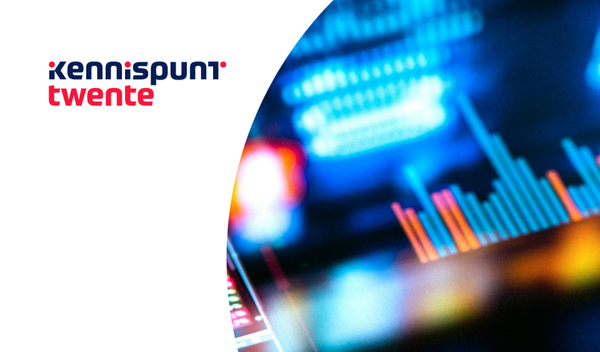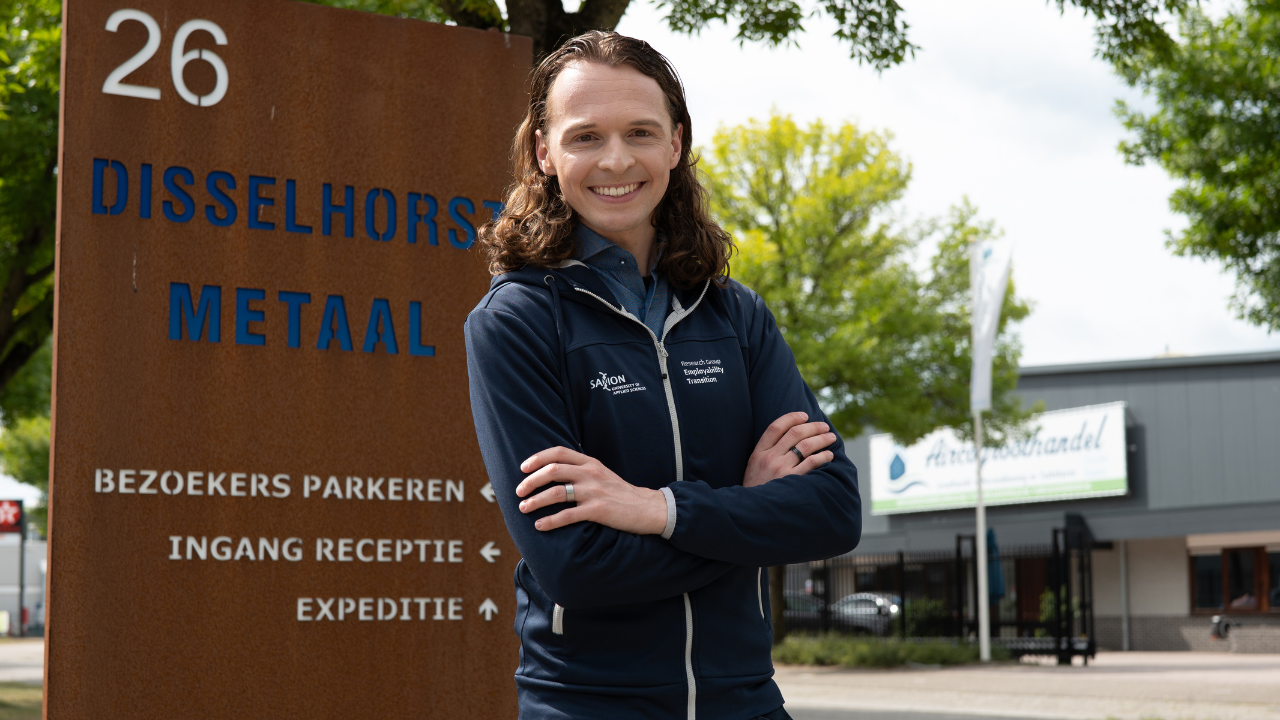
Every day, we’re committed to strengthening and future-proofing our region.
Working side by side with robots can genuinely help Twente’s business community move forward. Saxion’s lead researcher Milan Wolffgramm is convinced of that. He carries out lots of practice-based research in this field. Together with fellow researchers and Saxion students, he inspires and supports Twente companies in robotising their production processes. His efforts didn’t go unnoticed: he earned a special top-15 nomination for New Scientist Science Talent 2025 and, thanks to the public vote, secured a spot in the top 5.
Date of Publication: 14 October 2025
Read time +/- 5.8 minutes
Milan stood out on the list, as he was the only nominated scientist affiliated with a university of applied sciences.
“We were up there alongside top researchers from the Netherlands and Flanders and, as far as I know, that’s only happened a handful of times before. It’s a great recognition of the work I’m doing together with a team of dedicated practice-based researchers,” he says.
Robot implementations and education development as core business
Milan is a lead researcher at Saxion’s Employability Transition research group and a lecturer at the Academy of People & Work. He’s also a business developer with Saxion’s Smart Mechatronics and Robotics research group.
“We explore how companies, education providers and employees can prepare for new robotic solutions. We look at which technology fits best and turn ideas into working set-ups. That also means looking closely at how the company and workshop are organised, and what employees value in their work. Getting staff on board—so they back the changes, are well supported, can work confidently with robots and stay employable long-term—is just as important.”
According to Milan, this calls for an integrated approach and close collaboration between technical experts, managers, shop-floor staff and workplace-innovation specialists.
“That way, our research connects directly to practice. It also delivers insights that academia is asking for. So our work is both practical and scientifically relevant.”
He notices many entrepreneurs want to robotise, but are too busy to free up time.
“We try to inspire and unburden them by offering structure, methods and capacity. Our Saxion students are itching to get stuck in on real projects. And that’s a win-win-win. Students bring a fresh perspective, have time to dig deep and can lean on Saxion’s research groups. Together, we come up with tailor-made solutions that genuinely help. We don’t take over—we roll up our sleeves and do it together, for impact that shows.”
Saxion as a driver
Milan wants to be a driver for Twente’s entrepreneurs.
“From Saxion, we can think along about how to apply robots in the business, improve existing solutions, or breathe new life into projects that have stalled. In our own robotics lab, we’ve got robots to showcase the possibilities. We also take them out to regional companies for demos and real-life tests.”
Milan spends a lot of time at companies and education providers.
“I see huge expertise here, that down-to-earth Twente mentality, and a real drive to work together across the region. That makes it easy to connect experts and create more impact together than each of us would alone. Super cool! If we link things smartly, you get quick, visible wins. It also builds trust and encourages people to keep building together. One strong example is a VET school in Hengelo. A few years back, the tech teachers did little with robotics. Thanks to great collaboration between teachers, students and practice-based researchers, robots have become a firm part of the curriculum. The school still benefits—and so does our region.”
Looking ahead
Although the New Scientist Science Talent 2025 title ultimately went to someone else, the nomination itself is a big achievement.
“Of course, we’d have loved to bring the prize home,” he says with a smile. “At the same time, the fact that we, as a university of applied sciences, were nominated, made the top 5, and received so many votes and so much support from the Netherlands and Flanders—that’s a victory in itself. We’re hugely proud. We’ll keep pushing with extra energy to drive robotisation in Twente. That matters.”
“Twente’s industry is praised, but it’s also vulnerable,” Milan adds. “Entrepreneurs face pressure from staff shortages, high energy prices, scarce raw materials and fierce competition. It’s great to help organise work in a smarter, safer and more sustainable way. Sometimes a small change makes a big difference: getting more done in the same time and ensuring workable conditions. All of that contributes to the much-talked-about Bruto Twents Geluk—Twente’s take on wellbeing.”
Interested companies and schools looking for support with robotics are always welcome to get in touch.
Reach out to Milan at m.r.wolffgramm@saxion.nl—no strings attached.
Share article on:
Marloes Neeskens
Milan Wolffgramm, Saxion
Stay up to date!
Sign up to our newsletter and we keep you up to date with the latest news about innovation in Twente.

